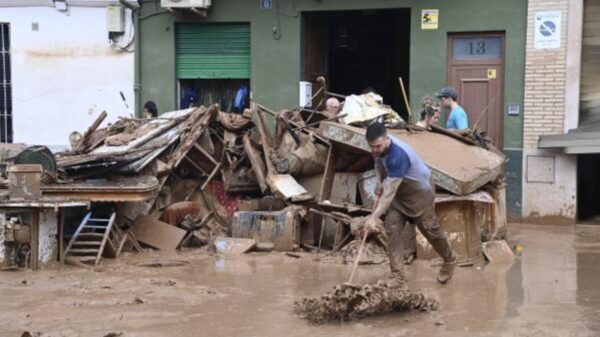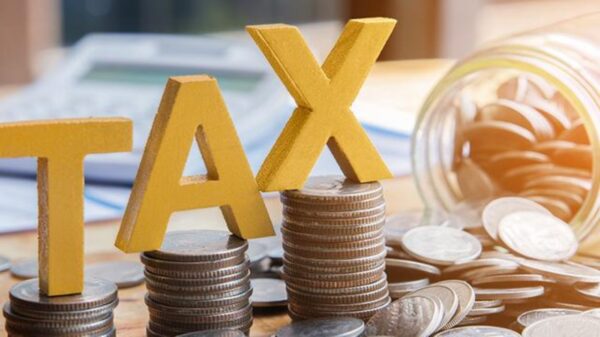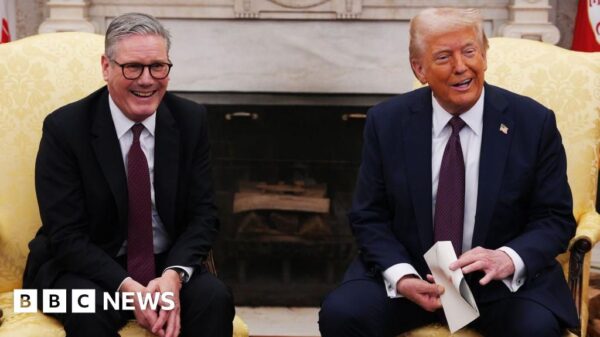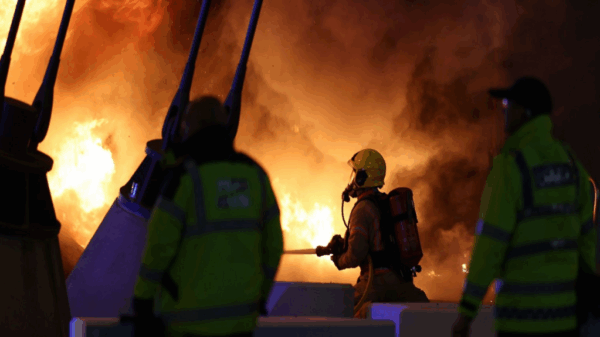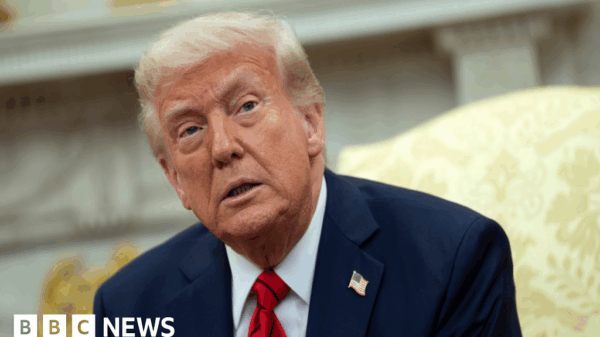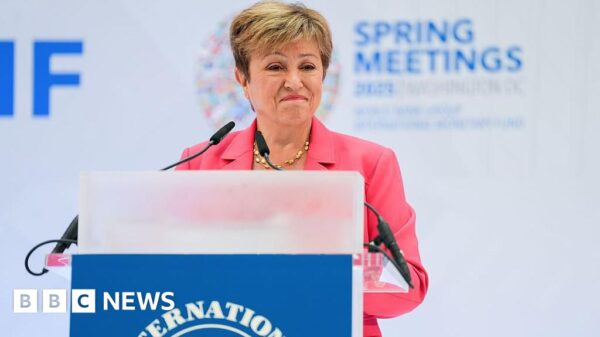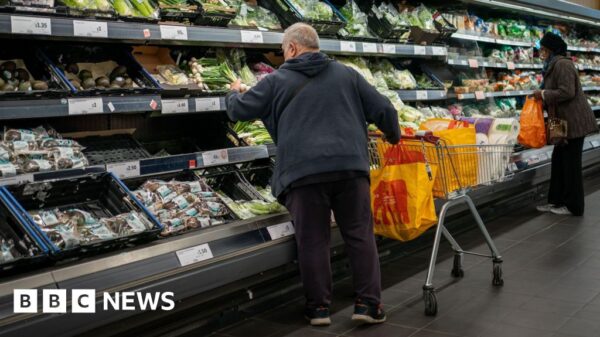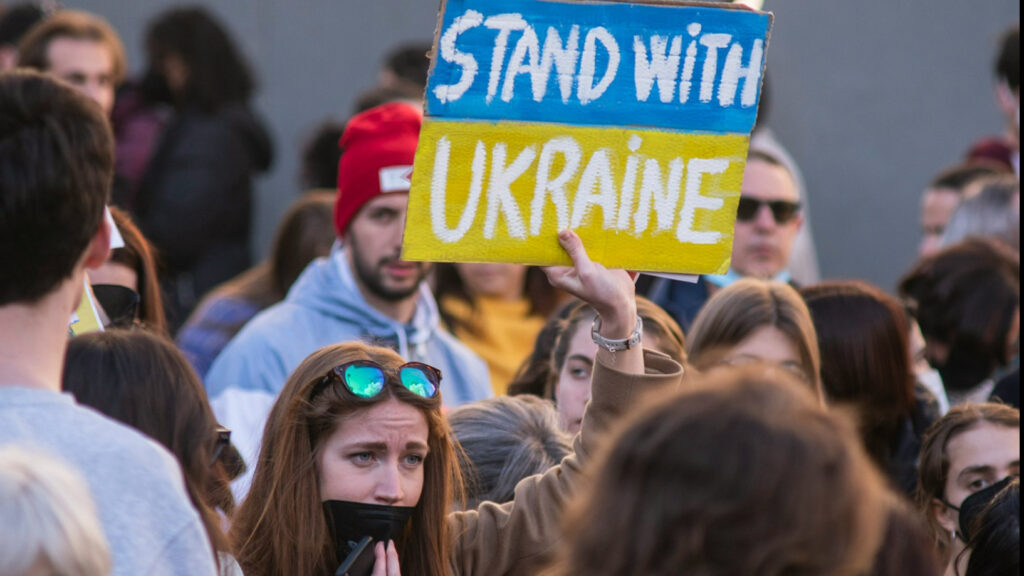As the 2024 G7 Foreign Affairs Ministerial meeting takes place in Capri, Italy, the urgency for concrete action to support Ukraine has never been clearer. With Russian missiles continuing to decimate Ukraine’s already fragile energy system, leaving more than 200,000 people without electricity in Kyiv, stronger actions, not just words, are desperately needed from G7 leaders to restrain Putin’s thirst for destruction and aid Ukraine’s much-needed recovery efforts, write Svitlana Romanko, Founder and Director of Razom We Stand, and Anna Ackermann, Policy Analyst at the International Institute for Sustainable Development and Board Member of Ecoaction Ukraine.
Three key priorities must be at the forefront of the G7 agenda: closing fossil fuel sanction loopholes, transferring Russian frozen assets for Ukraine’s benefit, and extending support to Ukraine to rebuild cleaner and better.
Closing fossil fuel sanction loopholes is critical in undermining Russia’s ability to fund its war machine. While the EU and G7 countries have implemented bans on imports of coal, crude oil, and oil products, these efforts have only been partially effective, as Europe continues to facilitate Russia’s gas exports. Last year, Russia sent ships carrying more than 35 million cubic metres of LNG into EU ports, with Spain and Belgium each importing 35% of the total, followed by France at 23%. The remaining volume was distributed among other EU countries, including Germany and the Netherlands.
Russia’s total revenues from fossil fuel exports have remained staggeringly high, surpassing €600 billion since the beginning of the invasion. It is unacceptable that EU citizens are unwittingly contributing to funding countless war crimes in Ukraine, which translates to the equivalent of every EU citizen effectively handing over approximately €420 to the Kremlin.
To truly suppress Russia’s fossil fuel export revenues, stronger enforcement measures must be put in place. Agencies such as the US Office of Foreign Assets Control (OFAC) and the UK’s Office of Financial Sanctions Implementation (OSFI), and their EU counterparts, must continue sanctioning vessels violating price caps and immediately ban transshipment of Russian LNG in EU ports.
Prohibiting the continuing transshipment in ports like Zeebrugge in Belgium, Montoir and Dunkerque in France, Bilbao and Mugardos in Spain, and Rotterdam in the Netherlands, could limit Russian exports to non-EU countries as they are logistically reliant on these ports to facilitate higher sales to non-EU buyers.
Additionally, the importation of oil products produced from Russian crude must be banned in countries like India, where these oil products comprise only 3% of sanctioning countries’ total imports. Bans would not be inflationary but would cut Russian export revenues by €332 million per month.
Confiscation of Russian frozen assets presents another avenue for supporting Ukraine. Nearly US$300 billion of Russia’s sovereign assets have been frozen in G7 and EU states, with the majority held in Belgium and other EU member states. Confiscation of these assets is not only legally justifiable but is also a proportional international countermeasure against Russia’s aggression, which could spread beyond Ukraine if it continues to go unchecked. The frozen assets, including those of the Russian Central Bank, could serve as a key source of support and compensation for Ukraine’s losses and rebuilding needs, estimated at €453 billion, for two years of war.
Most importantly, supporting Ukraine to build back better is essential for its long-term recovery and resilience. With far over 50% of its energy infrastructure damaged or destroyed, Ukraine faces immense challenges in reconstruction. DTEK, Ukraine’s largest private energy company, has reported that five of its six big coal power plants have been damaged, resulting in an 80% capacity loss.
After Russia’s destruction of the Trypilska Power Plant -the largest in the Kyiv region- the state-owned company Centrenergo reported a 100% loss of generation facilities. Ukrainian energy workers continue to bravely risk their lives to keep vital functions running, often paying the ultimate price in their dedication to their country, with hundreds of energy sector employees killed while working to keep the system going.
The World Bank estimates the total cost of economic recovery and reconstruction to be close to US$ 500 billion. Immediate reconstruction needs continue to grow, as does this figure, with Russian forces continuing to target Ukraine’s energy facilities and public infrastructure relentlessly. At least 20% of the total proposed budget for financing the reconstruction must be dedicated to supporting the clean energy transition, which simultaneously benefits climate and environmental measures.
Decentralised clean energy production, energy efficient and green reconstruction projects are already very in demand by Ukrainian communities searching for ways to improve their security in the short, mid- and longer term. To mitigate the risk of a humanitarian catastrophe, increased funding for the construction of decentralised energy sources, such as wind installations and local solar panels, offers reliable energy without the need for expensive fossil fuel imports and could prove to be vital for Ukraine’s reconstruction.
Recent record-breaking growth of financially advantageous renewables not only solves energy security demand but also mitigates climate challenges, offering a viable solution to Ukraine’s unique energy security needs.
As the G7 convenes, it must demonstrate true solidarity with Ukraine through decisive action, not just words of support in a closing statement. The time for strong rhetoric without matching actions has now passed; now is the time for real actions that will make a tangible difference in Ukraine’s journey towards peace, stability, and a clean energy resilient future. The G7 must rise to the occasion and deliver on its commitments to support Ukraine in its time of need.
Svitlana Romanko, PhD, is an international environmental attorney and Director of Razom We Stand, an independent Ukrainian movement dedicated to the permanent defeat of Russian fossil-fuelled aggression and a clean energy future for Ukraine and the world.
Anna Ackermann is a founding member of Centre for Environmental Initiatives “Ecoaction”, where she worked as head of the climate department and currently serves as a board member. She is also a policy analyst at the International Institute for Sustainable Development, working on a green reconstruction of Ukraine.

